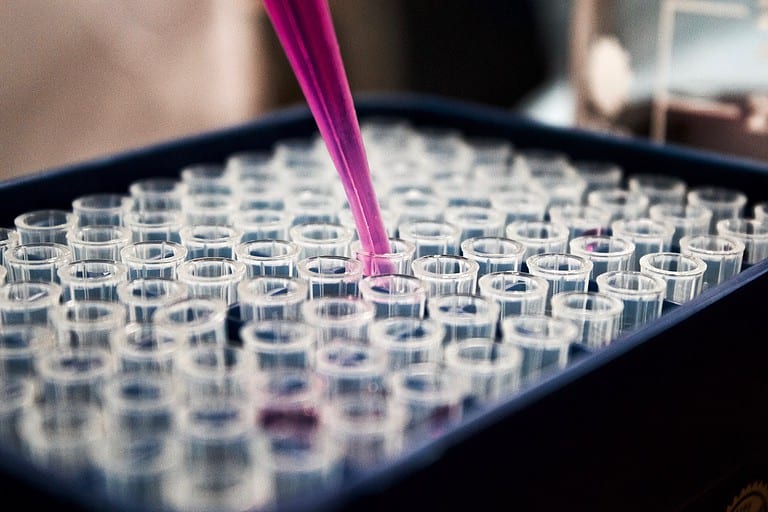Nutrigenetics: Revolutionizing Our Eating Habits Through Personalized Nutrition
Personalized nutrition has become a buzzword in the world of health and wellness. With advancements in technology, it is now possible to analyze an individual’s genetic makeup and tailor their diet accordingly. This approach to nutrition is known as nutrigenetics, and it is revolutionizing the way we eat.
Nutrigenetics is the study of how an individual’s genetic makeup influences their response to different foods and nutrients. By analyzing an individual’s DNA, scientists can identify genetic variations that affect their ability to metabolize certain nutrients. This information can then be used to create personalized dietary recommendations that take into account an individual’s unique genetic profile.
While personalized nutrition is still a relatively new field, it has the potential to transform the way we approach health and wellness. By taking a more individualized approach to nutrition, we can optimize our diets to meet our specific needs and improve our overall health and well-being.
Understanding Nutrigenetics
What is Nutrigenetics?
Nutrigenetics is the study of how our genes interact with the food we eat. It examines how genetic variations affect the way our bodies process nutrients and how this affects our health. In other words, nutrigenetics is the science of personalized nutrition. By understanding an individual’s genetic makeup, nutrigenetics can help to develop personalized diets that are tailored to their specific needs.
How Nutrigenetics Affects Our Health
Nutrigenetics has the potential to revolutionize the way we eat and improve our health outcomes. By understanding an individual’s genetic makeup, nutrigenetics can identify potential health risks and develop personalized diets that can help to prevent or manage these risks. For example, nutrigenetics can identify genetic variations that affect an individual’s ability to metabolize certain nutrients, such as carbohydrates or fats. This information can be used to develop personalized diets that are tailored to the individual’s specific needs. This can help to prevent or manage conditions such as obesity, diabetes, and heart disease.
In addition, nutrigenetics can also identify genetic variations that affect an individual’s response to certain foods or dietary supplements. For example, some people may have a genetic variation that affects their ability to absorb vitamin D. Knowing this information can help to develop personalized diets that ensure an individual is getting the right amount of vitamin D. Overall, nutrigenetics has the potential to revolutionize the way we eat and improve our health outcomes. By understanding an individual’s genetic makeup, nutrigenetics can develop personalized diets that are tailored to their specific needs, helping to prevent or manage potential health risks.
Personalized Nutrition
Personalized nutrition is a rapidly growing field that tailors dietary recommendations to an individual’s unique genetic makeup, lifestyle, and health goals. By taking into account an individual’s genetic variations, personalized nutrition aims to optimize nutrient intake to maximize health benefits and reduce the risk of chronic diseases.
What is Personalized Nutrition?
Personalized nutrition is a type of nutrition that takes into account an individual’s genetic makeup, lifestyle, and health goals to create a customized diet plan. It is based on the concept that everyone’s nutritional needs are different and that a one-size-fits-all approach to nutrition may not be effective for everyone.
Personalized nutrition involves analyzing an individual’s genetic variations to determine how they affect nutrient metabolism and absorption, as well as how they interact with lifestyle factors such as exercise, stress, and sleep. This information is used to create a customized diet plan that is tailored to an individual’s unique needs and goals.
How Nutrigenetics is Used to Create Personalized Nutrition Plans
Nutrigenetics is the study of how genetic variations affect an individual’s response to nutrients and how this information can be used to create personalized nutrition plans. By analyzing an individual’s genetic variations, nutrigenetics can identify specific nutrient needs and deficiencies, as well as potential risks for chronic diseases.
Nutrigenetics can also be used to identify how an individual’s genetic variations affect their response to certain foods and dietary supplements. For example, some individuals may have a genetic variation that affects their ability to absorb and utilize certain nutrients, such as vitamin D or folate. By identifying these genetic variations, personalized nutrition plans can be created to optimize nutrient intake and reduce the risk of nutrient deficiencies.
In addition to genetic variations, personalized nutrition plans also take into account other factors such as an individual’s age, gender, weight, and activity level. By combining all of this information, personalized nutrition plans can be created that are tailored to an individual’s unique needs and goals.
Benefits of Personalized Nutrition
Improved Health Outcomes
Personalized nutrition can lead to improved health outcomes by tailoring dietary recommendations to an individual’s unique genetic makeup. Research has shown that genetic variations can impact how individuals respond to certain nutrients and foods, and personalized nutrition can help identify these variations and provide targeted recommendations. This approach can help prevent or manage chronic diseases such as heart disease, diabetes, and cancer.
Better Nutrient Absorption and Utilization
Personalized nutrition can also improve nutrient absorption and utilization. By identifying genetic variations that impact how an individual processes and absorbs certain nutrients, personalized nutrition can provide targeted recommendations on which foods or supplements to consume to optimize nutrient absorption. This can lead to better overall health and wellness.
Greater Adherence to Dietary Recommendations
Personalized nutrition can also lead to greater adherence to dietary recommendations. By providing targeted recommendations based on an individual’s unique genetic makeup, personalized nutrition can help individuals make more informed choices about their diet and increase their motivation to stick to a healthy eating plan. This can lead to long-term health benefits and improve the overall quality of life.
Overall, personalized nutrition has the potential to revolutionize the way we approach nutrition and health. By providing targeted recommendations based on an individual’s unique genetic makeup, personalized nutrition can lead to improved health outcomes, better nutrient absorption and utilization, and greater adherence to dietary recommendations.
Limitations of Personalized Nutrition
Limited Availability and Accessibility
Despite the promising potential of personalized nutrition, it is not yet widely available to the general public. The technology and resources required to analyze an individual’s genetic data and provide personalized dietary recommendations are still limited. As a result, only a small percentage of the population has access to these services. Additionally, these services may not be available in certain regions or countries. This lack of availability and accessibility limits the potential impact of personalized nutrition on public health.
Cost
Another limitation of personalized nutrition is the cost. The technology and resources required to analyze an individual’s genetic data and provide personalized dietary recommendations can be expensive. As a result, these services may not be affordable for everyone, limiting their potential impact on public health. Additionally, insurance coverage for personalized nutrition services may be limited or non-existent, further limiting accessibility for those who cannot afford to pay out of pocket.
Ethical Considerations
Personalized nutrition raises ethical considerations related to privacy and data protection. The collection and analysis of an individual’s genetic data may raise concerns about the potential misuse or mishandling of that data. Additionally, the use of genetic data to provide personalized dietary recommendations may raise concerns about discrimination based on genetic information. As personalized nutrition becomes more widely available, it will be important to address these ethical considerations and ensure that individuals’ privacy and data protection rights are respected.

In conclusion, while personalized nutrition shows promise for improving public health, there are limitations that must be addressed. These limitations include limited availability and accessibility, cost, and ethical considerations related to privacy and data protection. As technology and resources improve, and ethical considerations are addressed, personalized nutrition may become more widely available and accessible, making it a valuable tool for improving public health.
Conclusion
Personalized nutrition is an emerging field that holds great promise for improving health outcomes. By using genetic information to inform dietary choices, nutrigenetics and nutrigenomics are revolutionizing the way we eat.
Research has shown that genetics play a significant role in how our bodies respond to different foods and nutrients. By understanding an individual’s genetic makeup, personalized nutrition can provide tailored recommendations for optimal health and wellness.
While the science behind personalized nutrition is still in its early stages, the potential benefits are numerous. By optimizing nutrient intake based on an individual’s unique genetic profile, personalized nutrition may help prevent chronic diseases, such as diabetes, heart disease, and cancer.
However, it is important to note that personalized nutrition is not a one-size-fits-all solution. While genetic information can provide valuable insights, it is only one piece of the puzzle. Other factors, such as lifestyle, environment, and personal preferences, must also be taken into account when developing a personalized nutrition plan.
Overall, personalized nutrition has the potential to revolutionize the way we approach diet and nutrition. By combining the latest advances in genetics and nutrition science, personalized nutrition can provide tailored recommendations to help individuals achieve optimal health and wellness.







